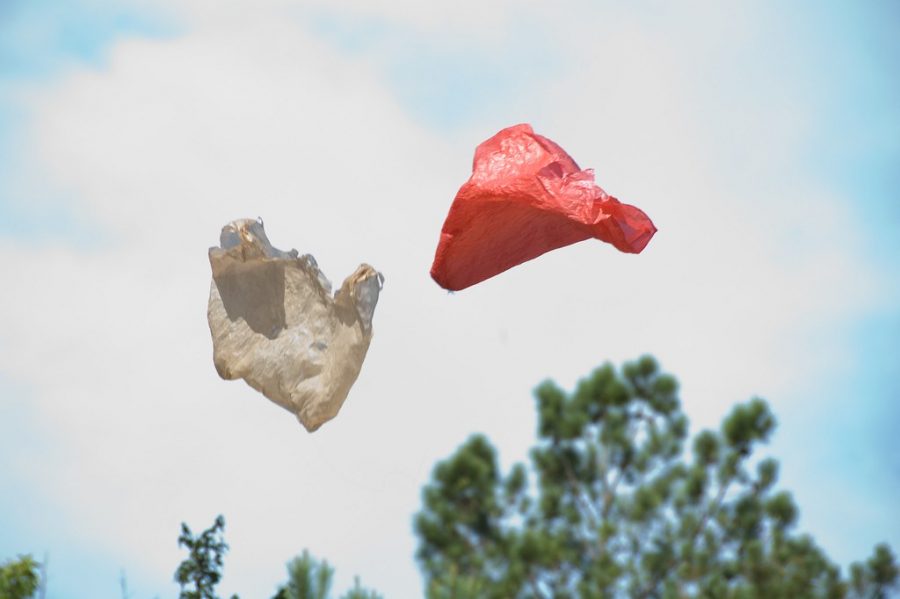Your donation will support the student journalists of The Tide, Richard Montgomery High School's student newspaper. Your contribution will allow us to purchase equipment and cover our annual website hosting costs.
Maryland moves toward banning plastic bags
April 19, 2021
Photo Courtesy of Ramin Bahrani via Creative Commons
Maryland is the most recent state to move towards banning single-use plastic bags after a majority vote in the House of Delegates to prohibit retailers from providing plastic bags to consumers on March 11.
Maryland is the most recent state to move towards banning single-use plastic bags after a majority vote in the House of Delegates to prohibit retailers from providing plastic bags to consumers on March 11. The bill is moving to the Senate, and is expected to be imposed in July 2022.
The amount of waste produced by Maryland amounts to around 12 million tons annually, with 13 percent being plastic bags and other plastic material. As of 2020, there has been a 30 percent increase in plastic waste due to the pandemic and associated health measures, according to statistics from a recent WTOP article.
Plastic bags are prohibited in recycling plants as they conflict with machinery, meaning that they end up in landfills and waterways and pose a danger to wildlife and the environment. Once in natural spaces, plastics never break down completely like organic material. Rather, they reduce to toxic microplastics that continue to pose a threat to nature. Additionally, the cost of plastic waste cleanup is absorbed by taxpayers.
“Unlike other pollutants, we know exactly where [plastic bags] are coming from, and we can stop it,” Adam Ortiz, director of Montgomery County’s Department of Environmental Protection, said.
“Ultimately, plastic bags are detrimental to the environment since they aren’t being disposed properly; harming wildlife and polluting water sources,” junior and supporter of the Sunrise Movement Sierra Stubbs said. “I’m not opposed to a plastic bag mandate since it’s an effective way to change smaller behaviors towards more eco friendly solutions.”
A possible consequence of banning plastic bags could be the increased use of paper bags as an alternative. However, contrary to most plastics, paper materials are recyclable. Additionally, plastic bag policy varies across the state, and thus results in different rates of use of reusable versus plastic bags. A statewide ban could unify cities and bring more clarity to dealing with the issue of plastic bags.
“I think it’s a step in the right direction,” an anonymous freshman said. “But I’m not sure how they’d be able to enforce [the bill].”
On the local level, Montgomery County has passed a ban on plastic bags and additionally requires a fee for their suppliance. In 2020, a similar bill passed in the Maryland House of Delegates, but did not reach the Senate floor. Legislation imposing a fee on non-reusable bags has failed to pass Maryland’s General Assembly for years, leading legislators to make certain compromises.
Maryland will be part of a group of nine states in the nation that doesn’t engage in plastic bag usage, but it will be the sole state that forbids retailers from charging for the supplication of reusable plastic and paper bags. The House Environment and Transportation Committee concluded that this decision would be a more appropriate initiative. Moving forward, the legislation will allow regions in the state to request charging a fee. Additionally, there are exceptions to the statewide ban, such as specified produce bags.
“The impact that plastic waste has on the environment should not be ignored, and I think that everyone should try and do what they can to protect the environment. [However, they should] not force others to do what they quite literally can’t do,” junior Sui Sung said. “I think for now an incentive to use reusable bags would be good, and maybe like giving away reusable bags for people to use.”
“Ideally we want everybody to be moving toward using reusable bags, and there is evidence that demonstrates that a ban on plastic bags and charging for durable bags really does move people to use reusable bags,” Delegate Brooke E. Lierman, sponsor of the bill, said. “Grocery stores have the ability to charge if they want to.”
